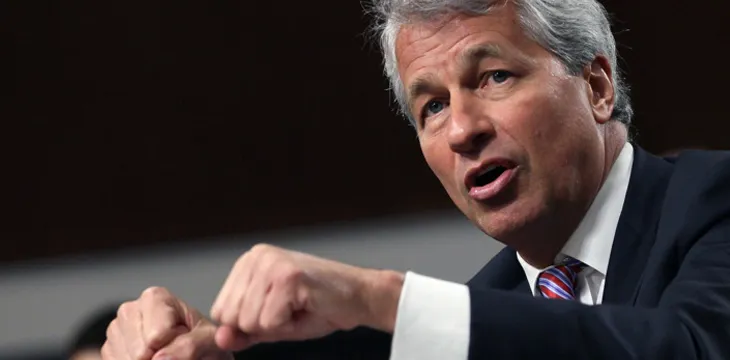|
Getting your Trinity Audio player ready...
|
Investment bank JPMorgan Chase has filed a patent for a new asset-backed virtual receipt system, powered by blockchain technology.
According to details of a patent filing published on July 19 by the U.S. Patent and Trademark Office (USPTO), the system will deliver receipts as tokens on a new public blockchain model. The patent is titled “Systems and methods for management of asset or obligation-backed virtual receipts on a distributed system,” and looks specifically at issuing tokens in place of virtual receipts, simplifying the process of buying and trading assets.
The proposed system delivers Virtual Depository Receipts, tokens that are backed by some kind of asset. The token and the asset to which it relates are linked through their distributed ledger system, allowing for a number of advantages in handling ownership rights and transfers.
The news comes as the latest major blockchain development from a leading name in global finance. One of the most active industries around blockchain research and development, banking and finance businesses are amongst those racing to secure patents for blockchain initiatives.
The patent filing is the latest undertaken by JPMorgan, following a patent granted earlier this year for intra and inter-bank transfers. The multinational bank is expected to be working closely on a number of other blockchain projects, with the firm positioning as one of the more proactive in the sector around blockchain technology. Crucially, their patent applications are seen as a sign of blockchain technology gaining increasing mainstream recognition and support, as more of the world’s biggest companies tie up blockchain-related IP.
JPMorgan is a contributing member to several blockchain consortia, including Enterprise Ethereum Alliance and Hyperledger, in addition to their in-house research and development. Its CEO, Jamie Dimon, has said that he is personally bullish on blockchain technology, even if he’s understandably a little lukewarm on the BTC bubble, which he described as “worth nothing.”
Their virtual receipts patent, if granted, describes a system that could prove significant for asset trading in future, capitalising on the distributed ledger technology to allow transfers of digital representations of assets via the blockchain.

 07-13-2025
07-13-2025 





